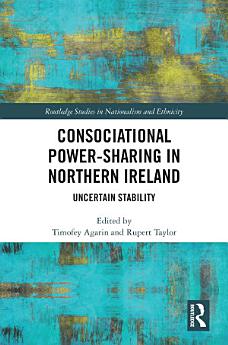Consociational Power-Sharing in Northern Ireland: Uncertain Stability
About this ebook
Contributors to this book highlight that scholarship on consociational democracy anticipates political stability and continuous integration in post-conflict societies. However, over 25 years on from the Good Friday Agreement concerns remain about the adequacy of consociational power-sharing to ensure a fully functional form of government capable of providing stability and of addressing deeper political and social issues: While violence is absent, ethno-national identities remain in a state of a fragile equilibrium, and aspirations for significant progress on key issues like truth, justice, mutual respect, and socio-political inclusion have not been met. The reasons as to why this is so, and what can be done to rectify it, are central to the arguments that animate this timely book.
Consociational Power-Sharing in Northern Ireland will be of great interest to students and scholars in political science, law and constitutionalism, nationalism and ethnicity, and those interested in related topics in sociology and criminology. It will also appeal to practitioner communities related to power-sharing, political representation, and constitutional politics.
About the author
Timofey Agarin is Reader in Comparative Ethnic Conflict at Queen’s University Belfast, UK. He is the author of Minority Rights and Minority Protection in Europe (with Karl Cordell, 2016) and has published in journals such as the International Political Science Review, British Journal of Politics and International Relations, and Representation.
Rupert Taylor is a Visiting Research Scholar at the Centre for the Study of Ethnic Conflict, Queen’s University Belfast, UK. He is author of Systemic Racism in South Africa: Humanity Lost (2024) and the editor of Consociational Theory: McGarry and O’Leary and the Northern Ireland Conflict (2009) and Third Sector Research (2010).








